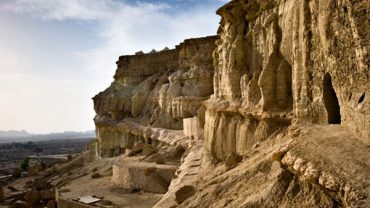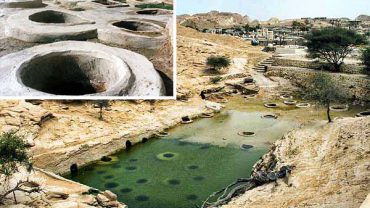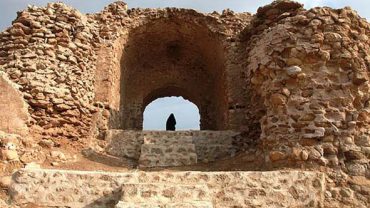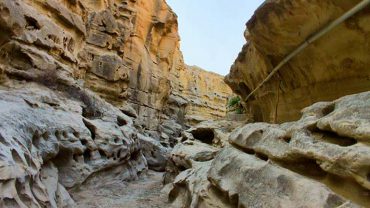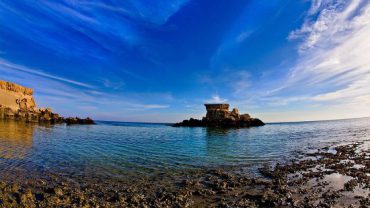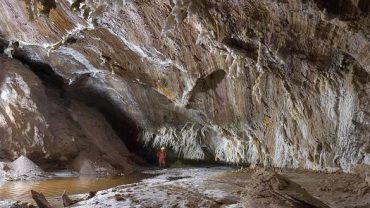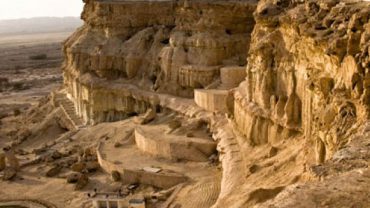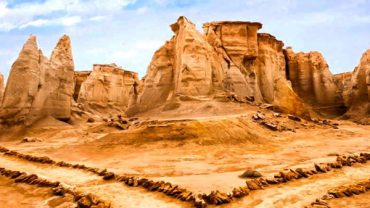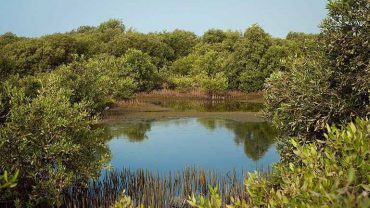- qeshm
- 21 Dec 2021
Kaseh Salakh is a featureless area, seven kilometers in length and about five kilometers in width, on the southern coast of the island. It has no flora or vegetation; there are no traces of life in it. Thousands of small and big dome-like hillsides and erosional patterns are seen there, those which have bubbled from [...]
- 21 Dec 2021
There are 366 wells forming Tala Water wells, equal to the number of days in a leap year; each day people used the water of one well. There are multiple wells next to Naderi Castle in Laft. The hardworking people in the region dug them through Schist rocks which had covered the ground. Since a plaster layer lies at [...]
- 21 Dec 2021
This castle, which is in Laft – an old village on Qeshm Island – beside Tala Wells, is known as Naderi or Nader Shahi (King Nader) Castle. But its construction predates Nader Shah. It is believed to have been built on the foundations of the ancient pre-Islamic fortresses. Ebrahim Kazerouni who visited the castle in [...]
- 21 Dec 2021
Aali Mohammad Valley which is located in the western part of Qeshm island spans along a north-south line. There is another geological phenomenon – Aali Mohammad Valley – near Chahkuh Valley in Qeshm. The valley is more attractive than Chahkuh thanks to beautiful scenes the latter has created on its walls; water is easily seen [...]
- qeshm
- 21 Dec 2021
Naz Island is the only place tourists can wade on foot or by car one km into the Persian Gulf waters. After 22 km from Qeshm, you reach Naz Island. It is one of the key tourist attractions of Qeshm Island. Naz Island which is around three hectares in area does not have a sandy beach and is surrounded by rocky [...]
- 21 Dec 2021
The salt in Namakdan Cave is among the best common salt which is rich in magnesium and can be used for medical purposes. In the southwest of the island there is a dome-like mountain, 237 meters above sea level. It has salt caves which are among the island’s most beautiful natural attractions. Strands of salt on the [...]
- Iran tourist attractions
- 21 Dec 2021
The historic Kharbas Caves of Qeshm Island in the Persian Gulf are one of the outstanding works of rock-cut architecture. There are indications – including multiple historical structures surrounding the caves and rock catacombs [man-made subterranean passageways for religious practice] which are scattered all across the island – that the caves date back to the [...]
- 21 Dec 2021
Stars Valley on Qeshm with a historical background of about two million years have been created as a result of soil, stone and sand erosion caused by the wind, rain. The valley is a rare natural masterpiece on the beautiful island of Qeshm. The northern side of Qeshm Island is close to Berke-ye Khalaf Village have shown its strange geological feature. Residents of [...]
- 21 Dec 2021
Mangrove forests of Qeshm island are among the unique natural attractions on the southern coast of Iran. The floating forests spread over an area of 7,500 hectares, a green strip in northwestern coasts of Qeshm. The forests also surround the port village of Laft in the Central District of Qeshm. Grey or white mangrove, three [...]
- Iran tourist attractions
- 21 Dec 2021
Qeshm Island Global Geopark with a total area of over 30,000 hectares is situated in the west of Qeshm Island. It was the Middle East’s first Geopark which made it to the Global Geoparks Network (GGN) supported by United Nations Educational, Scientific and Cultural Organization (UNESCO) in 2006. This Geopark spans several areas including Hara Forests, Salt Dome, Salt Cave, mineral springs, [...]
